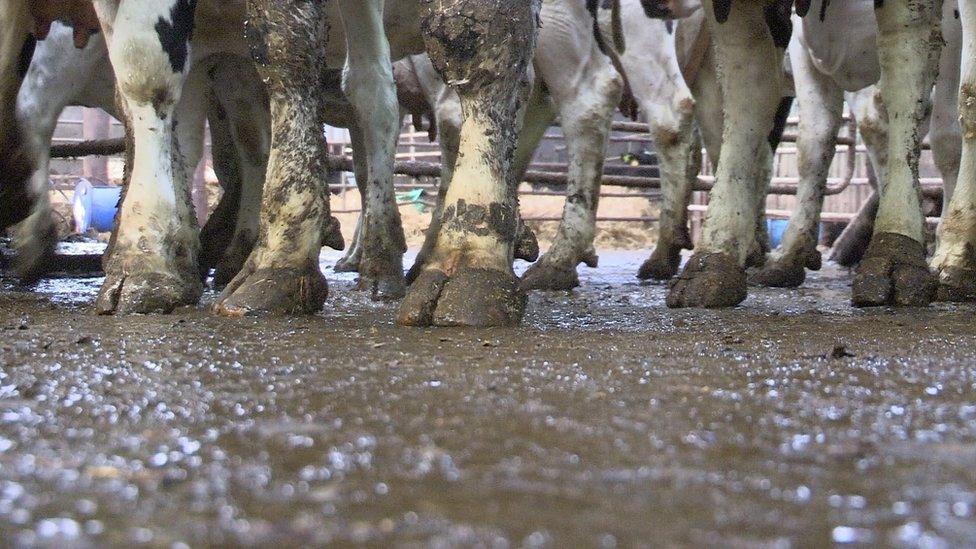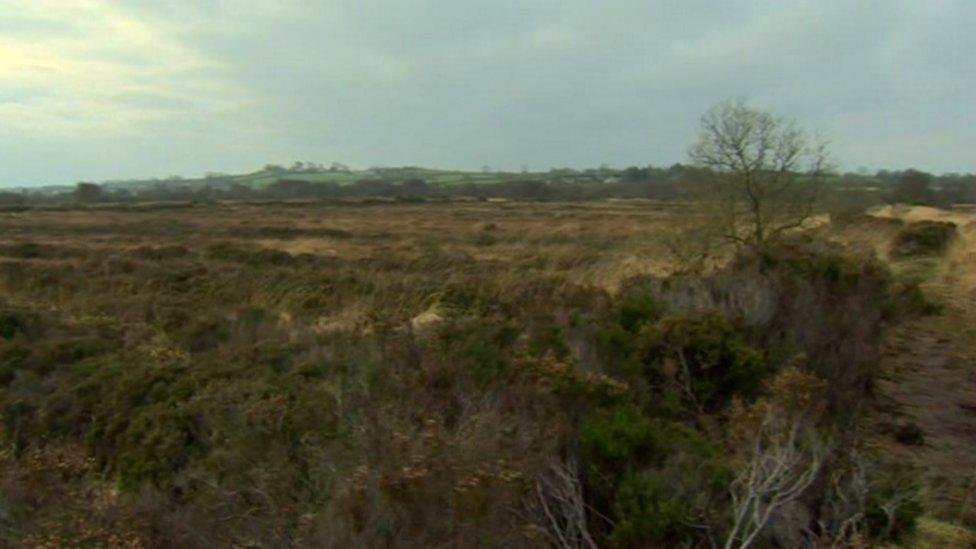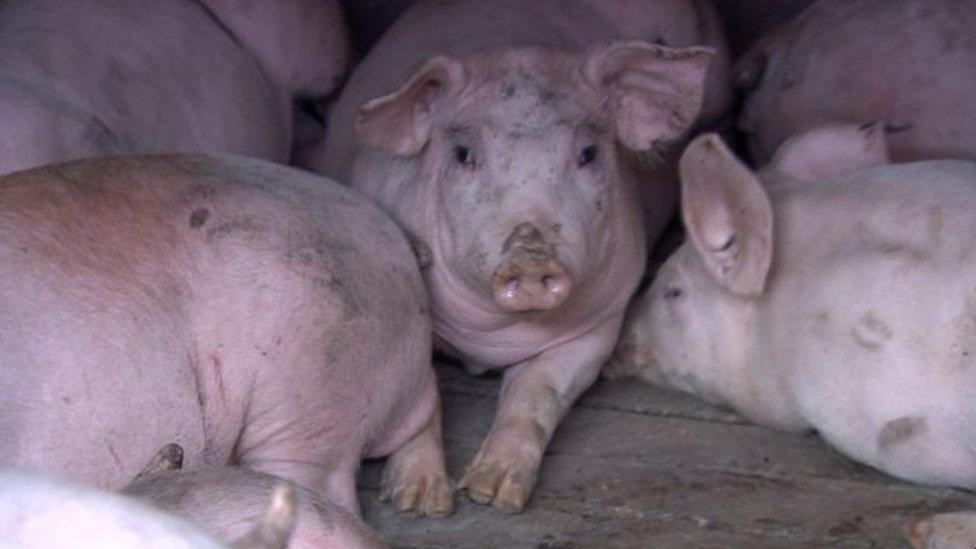Strict rules affecting planning decisions for livestock farmers withdrawn
- Published

Northern Ireland has a significant problem with ammonia, the bulk of which comes from agriculture
Strict new rules which had been affecting planning decisions for livestock farmers have been withdrawn pending a review.
The policy on ammonia was to have been challenged in the courts by a farmers' union.
High levels are affecting virtually all of Northern Ireland's sensitive protected sites like peatlands.
The rules meant milking parlours, cow sheds and anaerobic digesters, which emit ammonia, were not being passed.
Northern Ireland has a significant problem with ammonia, the bulk of which comes from agriculture.
Environmental experts who advise council planners began applying a much stricter interpretation last year.

But the Ulster Farmers' Union said it had been done without consultation and were planning to challenge it with financial backing from the wider agri-food industry.
UFU president Ivor Ferguson said some farmers had spent thousands on planning applications only to find the rules changed without warning.
He said the stricter rules "made it virtually impossible for most farm businesses" to meet the new thresholds.
The experts, Shared Environmental Services, which advises councils said they'd agreed to withdraw their stricter guidance.
"SES will continue to work with its partners to deliver a universally agreed way forward to reducing ammonia levels.
"We remain committed to ensuring this approach is responsible and sustainable, and that all steps are taken to mitigate the impact on our crucial agri-food sector."

The Ulster Farmers' Union has withdrawn its legal challenge.
Ammonia levels have risen by 22% in Northern Ireland since 2010, compared to 5% in the rest of the UK.
The emissions fall as nitrogen and can seriously affect sensitive vegetation like lichens on protected sites such as peatlands.
Ammonia emissions can also impact human health by affecting air quality.
The Department of Agriculture, Environment and Rural Affairs is working on plans to tackle emissions.
They include moves to low-emission slurry spreading equipment and the covering of slurry stores.
Research shows such measures can significantly reduce ammonia emissions.
The department is also reviewing its own guidance on ammonia and planning applications to take account of recent case law and court rulings.
SES says it has withdrawn its rules pending the outcome of that review.
- Published17 January 2018

- Published30 July 2018
